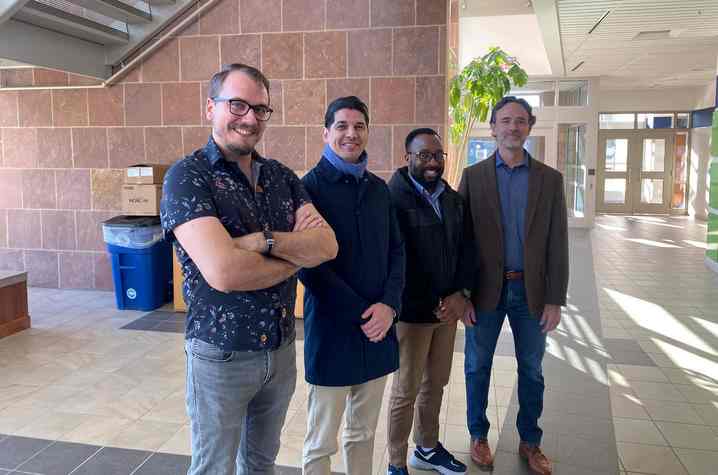

Researchers at the University of Kentucky Center for Applied Energy Research (CAER) and the Department of Chemistry have received a $1 million grant from the US Department of Energy (DOE) to advance their innovative biofuels research.
The project is titled “Robust Engineered Catalysts for the Conversion of Waste Oleaginous Biomass Feedstocks to Fuel-like Hydrocarbons via Decarboxylation/Decarbonylation.”
As part of the project, CAER will partner with Clariant Corp., Saola Energy and the National Renewable Energy Laboratory (NREL) of USA, to develop a robust engineered decarboxylation/decarbonylation (deCOx) catalyst.
CAER said that successful development of such a catalyst is a critical step in the scale-up of novel deCOx technology to produce renewable fuels from waste biomass feedstocks, or organic materials considered waste or byproducts.
“We believe this technology may provide an industrially-viable alternative to the production of renewable diesel that can compete with — or even improve on the economics and greenhouse gas reduction potential of — more commercially mature pathways,” said Eduardo Santillan-Jimenez, Associate Director of CAER Sustainable & Alternative Fuels (SAF) group.
Also, CAER will test it in a continuous reactor as well as characterize the fresh, spent and regenerated catalyst to gain insights into its deactivation mechanisms and inform computational work.
“Leveraging the computational strengths of Dr. Risko’s laboratory is key to the successful development of an engineered catalyst,” said Santillan-Jimenez. “We take pride in being the catalysis experts in our lab, but our partnership with the Risko lab adds computational chemistry expertise that greatly expands our capabilities and impact.”
CAER said that its SAF group has a long history of working with catalysts to give new life to waste biomass feedstocks. SAF group has pioneered a catalyst capable of transforming waste fats, oils and greases into liquid transportation fuels, including both renewable diesel and sustainable aviation fuel.
Moreover, CAER will be utilizing brown grease, which is an abundant and inexpensive waste stream that is currently incinerated or landfilled, leading to greenhouse gas emissions.
“No one wants brown grease,” said Robby Pace, a CAER researcher and co-investigator on the project. “But if we could take that waste stream and develop a novel way to put it to good use in the form of renewable diesel, that could have a positive impact on our environment and, hopefully, Kentucky’s economy.”
In a significant move toward advancing green energy and industrial growth in the state, Himachal…
Golabl chemical conglomerate BASF has announced that its now offering the world’s first biomass-balanced polyethersulfone…
In a crucial stint to bolster the biogas sector and sustainable dairying in the country,…
TotalEnergies SE has received approval to proceed with its Middlebrook solar and battery project in…
Andhra Pradesh Chief Minister Chandrababu Naidu has inaugurated the Rs 1,000-crore green hydrogen plant of…
The BITS Pilani has developed an innovative solution for managing landfill leachate, domestic septage, and…